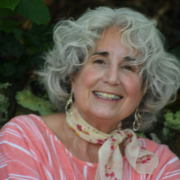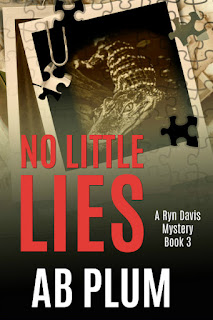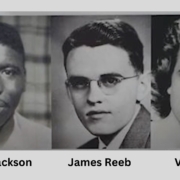When Will We Learn? by T.K. Thorne
It felt like a blow—what the woman beside me was saying.
Questions flicked through my mind: Was this what happened? How could I not remember that? Why did I not remember what had triggered the entire thing?
Circa 1980:
 My partner and I went into a well-known restaurant in Birmingham, Alabama to eat dinner. We were working the Evening Shift (3-11 pm). Though we were both young female officers in the Birmingham Police Department, the shift sergeant had put us together to work a beat that included two housing projects, a couple of fast-food joints, and one “nice” restaurant—the one we walked into.
My partner and I went into a well-known restaurant in Birmingham, Alabama to eat dinner. We were working the Evening Shift (3-11 pm). Though we were both young female officers in the Birmingham Police Department, the shift sergeant had put us together to work a beat that included two housing projects, a couple of fast-food joints, and one “nice” restaurant—the one we walked into.
Females and black officers were a small population. My partner was a member of a smaller demographic as a black female officer. I was a minority of “one” as a Jewish police officer, evidenced by my engraved name tag.
My religion was not something I spoke much about, unless someone asked a question. Thankfully, I never encountered direct prejudice from fellow officers about it. Dealing with being a rookie and a female rookie was enough. But that is another tale.
This story began when we entered the restaurant and sat at a booth. One of us took the portable radio from her gun belt and placed it on the table, as was customary for uniformed officers when eating. The man in a booth behind us twisted around and asked if we could turn it off. I replied we would turn it down and did so. When he repeated his request, I explained we had to keep the radio on in case we were called or there was an emergency we needed to respond to. Again, we adjusted the volume as low we could and still hear it.
This did not satisfy the “gentleman,” who stood and snarled at us.
I have always remembered what he said as being something that included the “N” word; he got loud in the restaurant with his remarks; and we arrested him for Disorderly Conduct or (possibly) Public Drunk, not without some trouble. After being told he was under arrest, he became passive-aggressive, sitting down again in the tight booth and refusing to stand up. It took several officers to carry him to the police car.
Forty-plus years later at a retired female officers’ luncheon, I sat next to the woman who had been my partner that night, the first time I had seen her since those days. She told me the story as she remembered it. Her recollection, though similar in the basics to mine, contained a particular addition that stunned me. After twice requesting that we turn off our radios, the man stood and said, “What do you expect from a ‘N-word’ and a Jew?”
She threw the contents of her salad bowl at him.
I don’t know and didn’t ask if the lettuce connected, but I assume (and hope) so.
Apparently, he had spoken loud enough that others heard him and, according to my partner, something like a bar brawl ensued, with people taking sides, and I called for backup. Several went to jail. In court, the judge required him to make contributions to a charity of our choice (a unique sentence, but one that seems aligned with the principles of justice).
What disturbs me is not that I forgot many of the details—I have forgotten way more than I remember about the past—but that I forgot the “. . . and a Jew” part.
Did I just pass it off as a drunk idiot, and it faded from my mind? This seems odd, since I distinctly remember the first and only time someone called me a “kike” (a derogatory slur for a Jew) in middle school. It stunned me. It is one thing to know intellectually that some nebulous people hate you, another to hear it from the mouth of your peers.
So why did I forget?
I don’t know the answer. But I know that anti-Semitism has increased 500% over the past decade in the country I call home. And it is still on the rise.
And that makes me profoundly sad . . . fearful . . . and angry at those who spew hatred and spread conspiracy lies that have roots hundreds of years old.
I have researched and written about the Civil Rights days of my city. I know that the movement for Black rights—to vote freely, to sit in the restaurant of their choice, to go to a school with White children, etc.—was decried as a “Black-Jewish Communist Conspiracy.”
Blacks and Jews have their own stories, their own histories, but we are particularly linked.
In a deeper sense, the entire human race is linked. As Dr. King wrote from the Birmingham Jail in 1963, “Injustice anywhere is a threat to justice everywhere. We are caught in an inescapable network of mutuality, tied in a single garment of destiny. Whatever affects one directly, affects all indirectly.”
And from a song of my youth: “When we will ever learn? When we will ever . . . learn?”
![]()
T.K. Thorne writes stories and books about whatever moves her and wherever her imagination flies.
![]()
T.K. Thorne writes stuff and books wherever her imagination flies.






Unfortunately, prejudice exists the world over. Instead of appreciating the best in other cultures and religions, some people are innately angry and don’t want to broaden their horizons. It’s sad since learning from others makes each one of us a better person.
Agreed, Kathryn
Thank you for posting about this very moving experience. When will we ever learn? The optimist in me wants to think that we are learning every day, how to be more civilized and tolerant and inclusive in our thoughts and words and actions. May it be so.
I prefer to remain an optimist. The opposite is just too ugly for me. Thanks, Saralyn
TK. Let me ask you something and play devil’s advocate here. Are you prone to forgetting such things? Is it possible that your partner was so angry she embellished years later? Not saying her account isn’t accurate, but the fact that you don’t remember such a momentous event. A quick fact check on the police report would clear things up — that is if records were kept that far back. Then again, police officers become immune to name calling, don’t they; is it possible you did your job and ignored the vitriol. Regardless, thank you and your partner for your years of service and for making it through partially unscathed. As always your posts resonate so strongly with me.
Beautifully written piece … and as the daughter of a Holocaust survivor, I, too, ask, when will we ever learn?
Unfortunately, the vast majority don’t learn and probably never will. If they did, history wouldn’t continually repeat itself. The human race has shown over and over again that in reality, we’re quite lacking in humanity. Thanks for sharing, T.K. If your story makes a positive impact on just one person who reads it, that’s one less bigot and racist in the world.
A powerful post, T.K., and much needed these days. Thank you.
Thanks for sharing, T.K. When will we ever learn? Hopefully, one day.